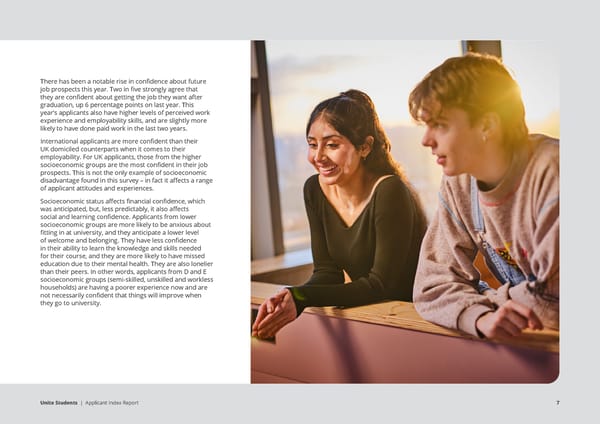There has been a notable rise in confidence about future job prospects this year. Two in five strongly agree that they are confident about getting the job they want after graduation, up 6 percentage points on last year. This year’s applicants also have higher levels of perceived work experience and employability skills, and are slightly more likely to have done paid work in the last two years. International applicants are more confident than their UK domiciled counterparts when it comes to their employability. For UK applicants, those from the higher socioeconomic groups are the most confident in their job prospects. This is not the only example of socioeconomic disadvantage found in this survey – in fact it affects a range of applicant attitudes and experiences. Socioeconomic status affects financial confidence, which was anticipated, but, less predictably, it also affects social and learning confidence. Applicants from lower socioeconomic groups are more likely to be anxious about fitting in at university, and they anticipate a lower level of welcome and belonging. They have less confidence in their ability to learn the knowledge and skills needed for their course, and they are more likely to have missed education due to their mental health. They are also lonelier than their peers. In other words, applicants from D and E socioeconomic groups (semi-skilled, unskilled and workless households) are having a poorer experience now and are not necessarily confident that things will improve when they go to university. Unite Students | Applicant Index Report 7
 Unite Applicant Index Report Page 6 Page 8
Unite Applicant Index Report Page 6 Page 8